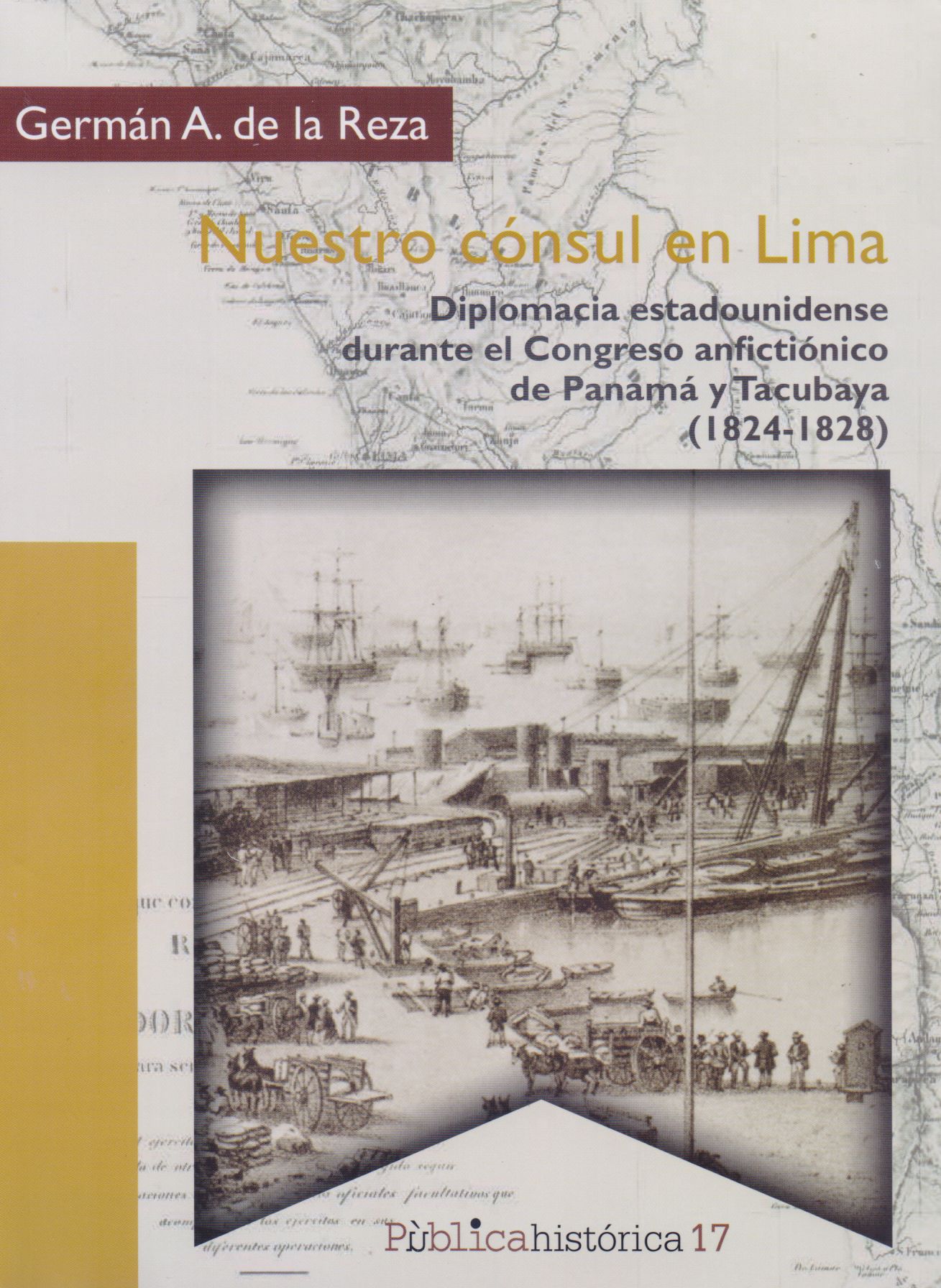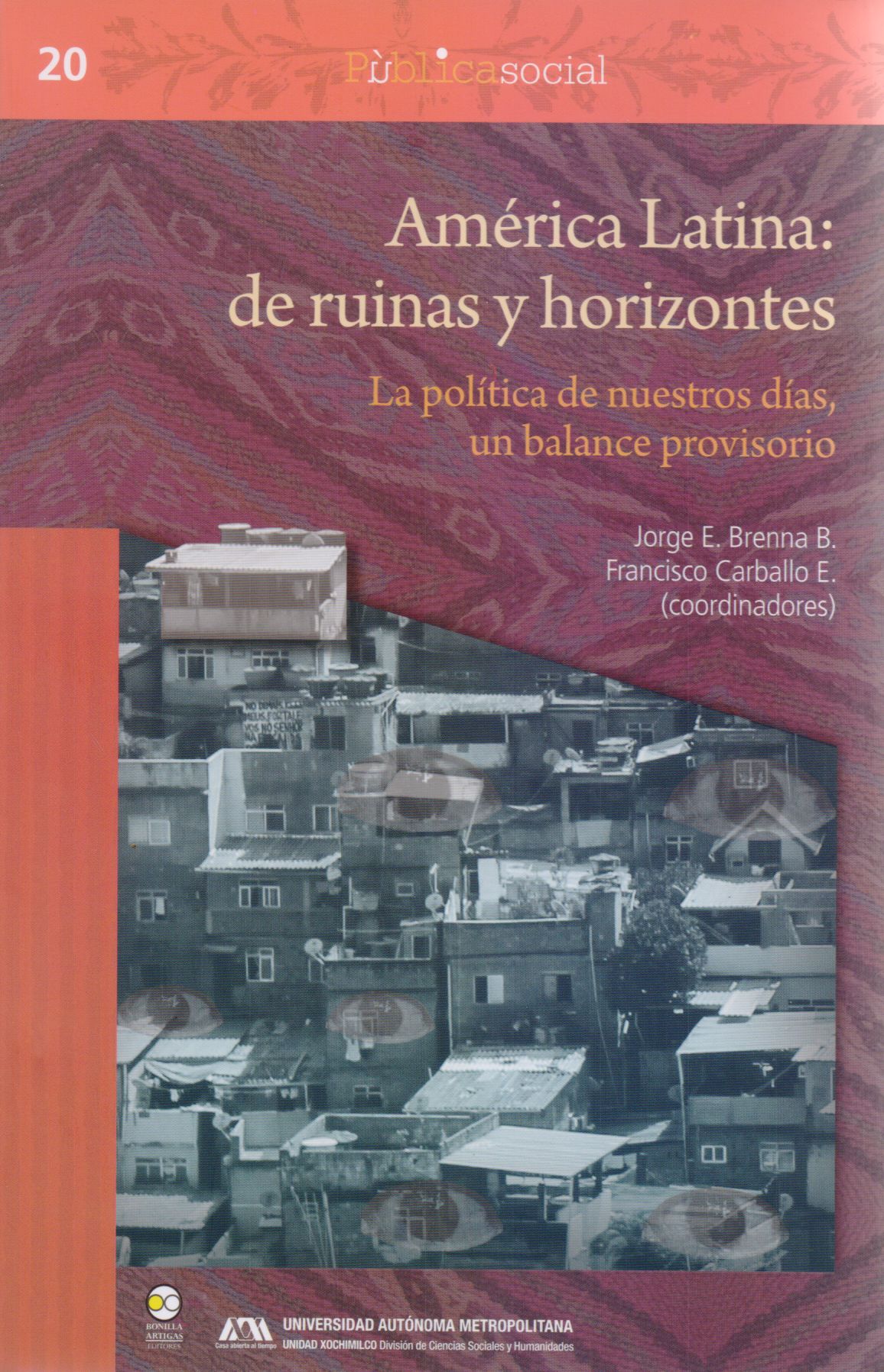Libros relacionados
 |
Nuestro Cónsul en Lima. Diplomacia Estadounidense Durante el Congreso Anfictióni De la Reza, Germán A. Bonilla Artigas Editores |
 |
Desafío de la Democracia, El: un Balance de la Argentina Contemporánea Gaggero, Horacio / Iriarte, Alicia / Roitberg, Humberto Ediciones del Signo |
 |
América Latina: de Ruinas y Horizontes. La Política de Nuestros Días, un Balance Brenna B. , Jorge / Carballo E. , Francisco (Coordinadores) Bonilla Artigas Editores |
 |
<<axiomas Políticos Sobre la América>> Los: de Alejandro Malaspina Lucena Giraldo, Manuel / Pimentel Igea, Juan Doce Calles |
 |
Ensayo Político Sobre la Isla de Cuba (Alejandro de Humboldt) Puig-Samper, Miguel Ángel / Naranjo Orovio, Consuelo Doce Calles |
 |
Narratives Of Identity In Social Movements, Conflicts And Change Hancock, Landon Emerald Group Publishing Ltd . |
 |
Política Económica: Elaboración, Objetivos e Instrumentos Cuadrado, Juan / Mancha, Tomás / Villena, José / Casares, Ja Mc Graw Hill Educacion |


|
Título: Disconnect. The Breakdown Of Representation In American Politics | |
| Autor: Fiorina, Morris / Abrams, Samuel | Precio: $624.00 | |
| Editorial: University Of Oklahoma Press | Año: 2011 | |
| Tema: Partidos Politicos, Politica, Gobierno | Edición: 1ª | |
| Sinopsis | ISBN: 9780806142289 | |
| Red states, blue states . . . are we no longer the United States? Morris P. Fiorina here examines today's party system to reassess arguments about party polarization while offering a cogent overview of the American electorate. Building on the arguments of Fiorina's acclaimed" Culture War? The Myth of a Polarized America," this book explains how contemporary politics differs from that of previous eras and considers what might be done to overcome the unproductive politics of recent decades. Drawing on polling results and other data, Fiorina examines the disconnect between an unrepresentative "political class" and the citizenry it purports to represent, showing how politicians have become more polarized while voters remain moderate; how politicians' rhetoric and activities reflect hot-button issues that are not public priorities; and how politicians' dogmatic, divisive, and uncivil style of "debate" contrasts with the more civil discourse of ordinary Americans, who tend to be more polite and open to compromise than their leaders."Disconnect" depicts politicians out of touch with the larger public, distorting issues and information to appeal to narrow interest groups. It can help readers better understand the political divide between leaders and the American public--and help steer a course for change | ||
Librería Bonilla SA de CV © Todos los derechos reservados. 2019
Última actualización: Jul 2019





